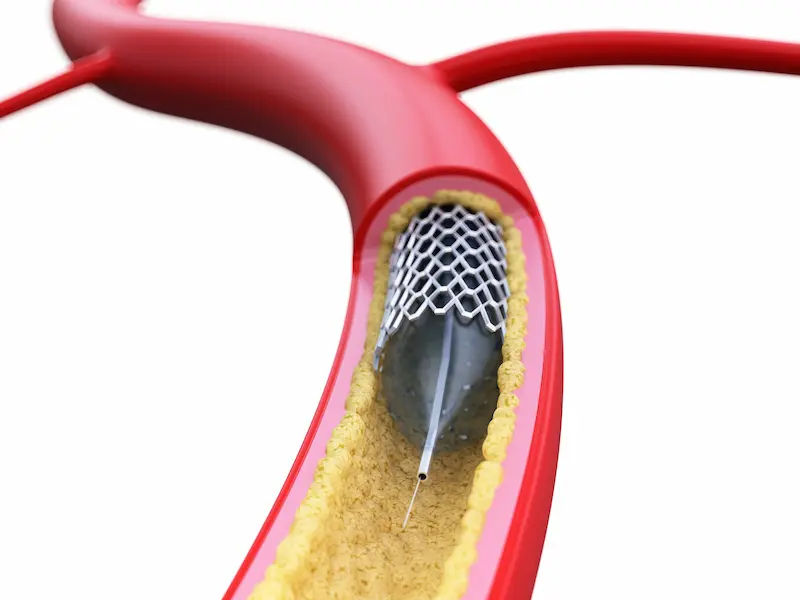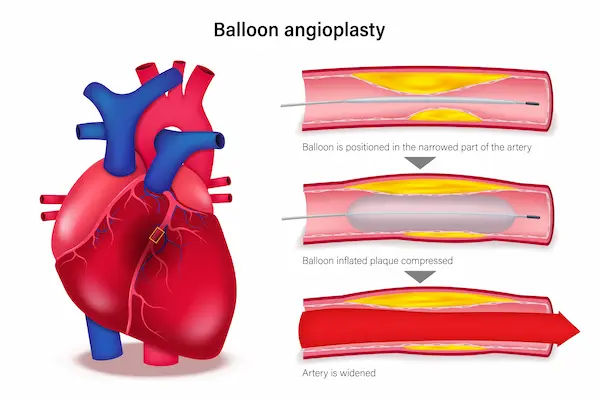- male
- 45 Years
- 20/02/2025
I'm a bit worried about some of the results from my 24-hour Holter monitor and other tests. My heart rate got as high as 130 bpm at 11 am and dropped to 38 bpm at 4 am, with an average of 96 bpm. They noted baseline sinus arrhythmia but no trachiarrhythmia runs, AV block, or significant ST changes. My echocardiography shows an EF of 68 percent, which they said is normal. My fasting glucose came back at 106 mgdl. Everything else like LFT, KFT, and TSH seems to be within normal limits. Should I be concerned about these numbers? What do they really mean for my heart health?
Answered by 1 Apollo Doctors
Based on your results, I recommend you continue to monitor your heart rate and rhythm. Since there are no significant abnormalities detected, no specific medication is required at this time. However, it is important to maintain a healthy lifestyle with regular exercise and a balanced diet to support your heart health.
Dr. Anshul Suggests...
Consult a Cardiologist
Answered 04/07/2025
0
0


Ask Apollo
AI powered Health Chatbot
-
Heart Rate Observations: a. A heart rate of 130 bpm at 11 am is elevated but can be normal with activity or stress. b. A heart rate of 38 bpm at 4 am may indicate bradycardia, but if asymptomatic, it might not be concerning.
-
Holter Monitor Results: a. Baseline sinus arrhythmia is generally benign. b. Absence of tachyarrhythmia, AV block, or significant ST changes is reassuring.
-
Echocardiography: a. Ejection Fraction (EF) of 68% is normal, indicating good heart function.
-
Fasting Glucose: a. A level of 106 mg/dL is slightly elevated, suggesting prediabetes. Consider lifestyle changes and monitoring.
-
Overall Assessment: a. Current findings are mostly reassuring. b. Discuss any symptoms or concerns with your healthcare provider for personalized advice.
Answered 10/09/2025
0
0
More Cardiology Health Queries
View allSo, my dad has been having this burning feeling in his feet and they found out its because of a blockage in the artery in his legs. He also has some kidney problems that we didnt know about because hes had high blood pressure for a long time without knowing it. Now theyre suggesting he gets an angiography done for both his leg and chest, and theyve started him on hypertension meds. Hes super active and has been walking for at least 2 hours every day for years without any issues. Do you think going through with the angiography and possibly angioplasty makes sense for someone his age since he doesnt really show any other symptoms?
Considering your father's age and his active lifestyle, it is important to assess the risks and benefits of angiography and angioplasty. These procedures can help in diagnosing and treating blockages in the arteries, which can improve blood flow to the legs and reduce symptoms like burning sensation in the feet. For someone with a history of undiagnosed hypertension and deteriorating kidney function, it is crucial to manage these conditions to prevent further complications. The hypertension medication prescribed will help in controlling blood pressure and protecting the kidneys. In this case, it would be best for your father to follow the advice of his healthcare provider and undergo the recommended angiography. Based on the results of the angiography, further decisions can be made regarding the need for angioplasty or other interventions. It is important to prioritize his cardiovascular health to maintain his active lifestyle and overall well-being. Additionally, it is essential for your father to continue his regular physical activity, like walking, as it is beneficial for his cardiovascular health. Ensuring a healthy lifestyle, including a balanced diet and regular exercise, is key in managing these conditions. If you have any further questions or concerns, feel free to ask.
Answered by 1 Apollo Doctors
I'm experiencing breathlessness when I exert myself and my heart rate seems really high. The recent echo shows mild TR, mild PAHRVSP at 45 mmHg, and a mild MR jet area of 2.5 sqcm, with tachycardia at 121 bpm. My hemoglobin and thyroid levels are normal, but I'm a bit concerned about the mild PAH. Should I be worried about this and check in with a doctor?
Yes, mild pulmonary arterial hypertension (PAH) should be followed up by a doctor, especially since you are experiencing breathlessness on exertion and have a high heart rate. Treatment for PAH may include medications such as sildenafil (Revatio) or tadalafil (Adcirca) to help lower the blood pressure in the lungs. It is important to monitor and manage PAH to prevent further complications.
Answered by 1 Apollo Doctors
I'm feeling a bit overwhelmed and I really need some guidance here. My dad, who's 57, was recently diagnosed with Calcification of Bicuspid Aortic Valve. The surgeon suggested going with a tissue valve, and we've looked at the upsides and downsides of both tissue and mechanical valves. But I'm still unsure and would love to hear your opinion. What do you think might be the best option for him considering his age and situation?
Visit your Physician for evaluation and appropriate management
Answered by 1 Apollo Doctors
Disclaimer: Answers on Apollo 247 are not intended to replace your doctor advice. Always seek help of a professional doctor in case of an medical emergency or ailment.

 What does sinus arrhythmia mean for my heart?
What does sinus arrhythmia mean for my heart? 


